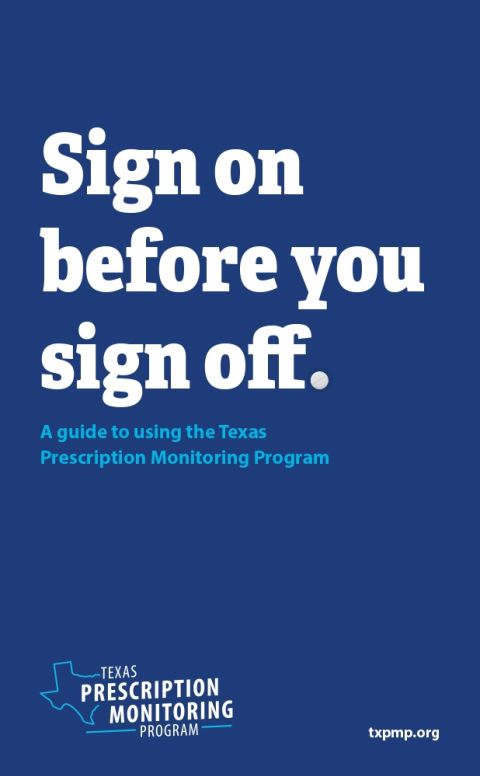About
About the Texas PMP
The Texas PMP, managed by the Texas State Board of Pharmacy, collects and monitors outpatient prescription data for all Schedule II, III, IV and V controlled substances dispensed by a pharmacy in Texas. It is sometimes referred to as the Prescription Drug Monitoring Program (PDMP), Rx AWARE, or PMP AWARxE.
PMP EHR Integration and NarxCare
The Texas State Board of Pharmacy offers statewide integration of the PMP within electronic health records and pharmacy management systems, along with access to NarxCare, at no cost to healthcare providers and practices.
Integration simplifies the process of checking the PMP, allowing for faster review of a patient’s controlled substance prescription history and more time to focus on patient care.
For more information, please contact Appriss Health at AccountSupport@apprisshealth.com.
Mandated Use of the Texas PMP
Prescribers and pharmacists are required to check the Texas Prescription Monitoring Program before prescribing or dispensing opioids, benzodiazepines, barbiturates or carisoprodol per House Bill 2561 from the 85th Texas Legislature.
Compliance for Physicians
To comply with the mandate, physicians must document in the patient's medical record that they checked the PMP.
When a patient’s record is accessed, some integrated electronic health records show only a patient score, rather than a full report. However, viewing the patient score alone is not enough to comply with the mandated PMP lookup requirement. To comply with the mandate, physicians or legally authorized delegates of the physician must review a full controlled substance history report for every patient, every time. The mandate applies to all outpatient and discharge prescriptions of opioids, benzodiazepines, barbiturates, or carisoprodol, regardless of the prescription duration. Patients diagnosed with cancer, being treated for sickle cell disease or who are terminally ill under hospice care are exempt.
Compliance for Pharmacists
To comply with the mandate, pharmacists must review a full controlled substance history report for every patient, every time. In some integrated pharmacy management systems, only the patient score is loaded when a record is accessed. However, viewing a patient score alone does not comply with the mandated PMP lookup requirement. Pharmacists must manually initiate a report request by clicking “View/Show Report” to access the full controlled substance history report.
Other integrated pharmacy management systems will load both a patient score and the full report. In this case, the pharmacist does not need to load the report separately to be compliant with the mandate. For more information, visit the Texas State Board of Pharmacy website.
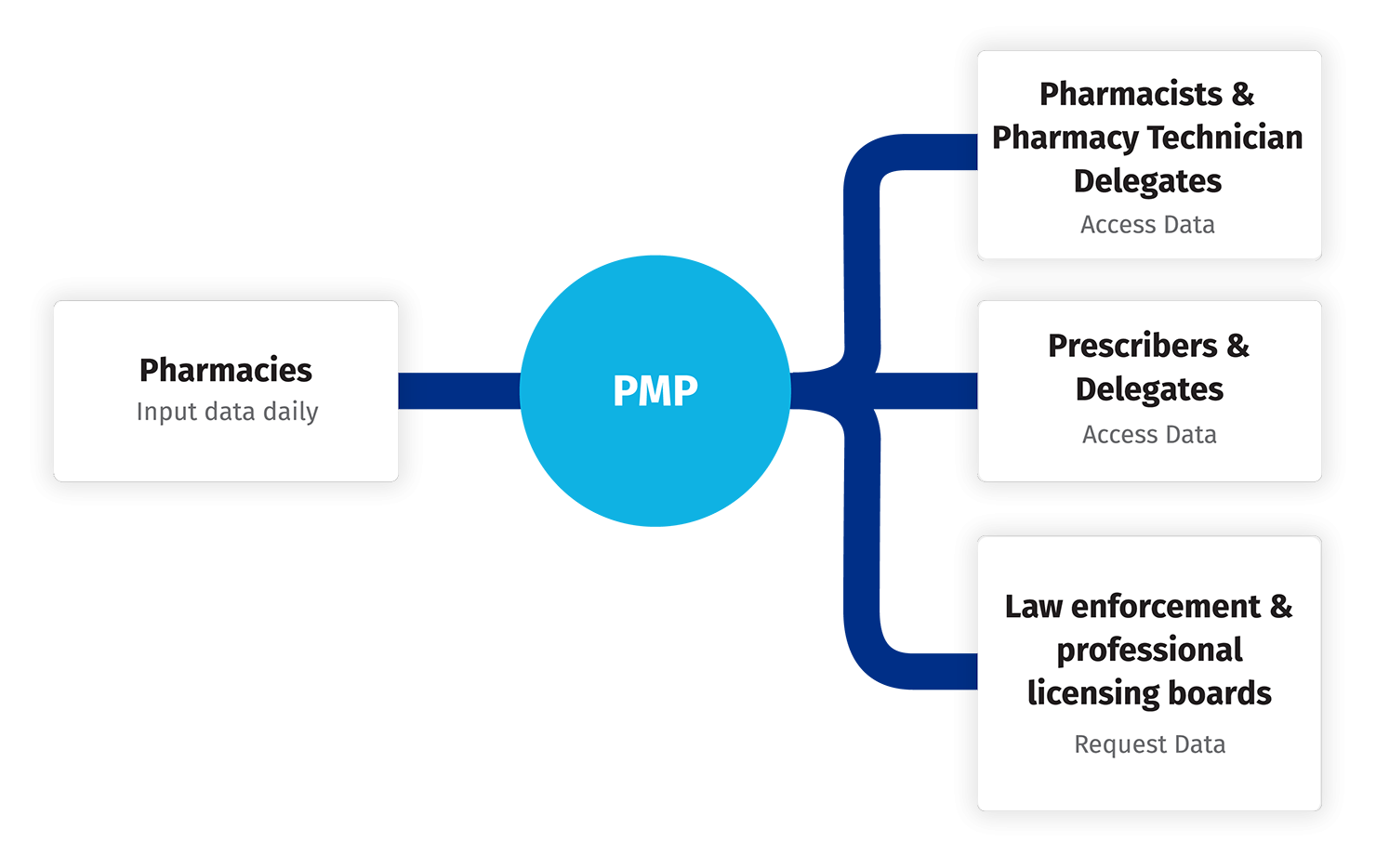
The Texas PMP is a patient care tool that can be used to inform prescribing practice and to address prescription drug misuse, diversion, and overdose. As the only statewide electronic database that stores all controlled substance information, the Texas PMP helps prescribers and pharmacists avoid potentially life-threatening drug interactions, decide when to make referrals to specialty treatment providers, and identify individuals obtaining controlled substances from multiple health care providers and pharmacies. The Texas PMP shares prescription data with 36 other states/entities, allowing prescribers and pharmacists to track prescriptions dispensed outside of Texas.
Patient Centered Care
The PMP is indispensable in the effort to prevent prescription drug misuse and substance use disorder. Through proactive monitoring of patient prescription data, health care providers can deliver the patient centered care needed to end the opioid crisis.

Using a Delegate to Access the Texas PMP
The Texas PMP allows prescribers and pharmacists to designate an unlimited number of delegates to access patient prescription data and generate reports on their behalf. Eligible prescriber delegates include nurses, medical residents, medical assistants, administrative staff, etc. Pharmacists may delegate this responsibility to Pharmacy Technicians. The use of delegates saves time for prescribers and pharmacists, and can be helpful in integrating use of the Texas PMP into your workflow.
Clinical Decision Making
The PMP is an essential tool that provides prescribers with critical information to make the best decisions for their patients and their practice. Every patient. Every time.

Sign on Before You Sign Off: About the Campaign
The Texas Health and Human Services Commission and the Texas State Board of Pharmacy have partnered to promote meaningful use of the Texas Prescription Monitoring Program, with the ultimate goal of preventing prescription drug misuse and overdose.
Download Campaign Materials
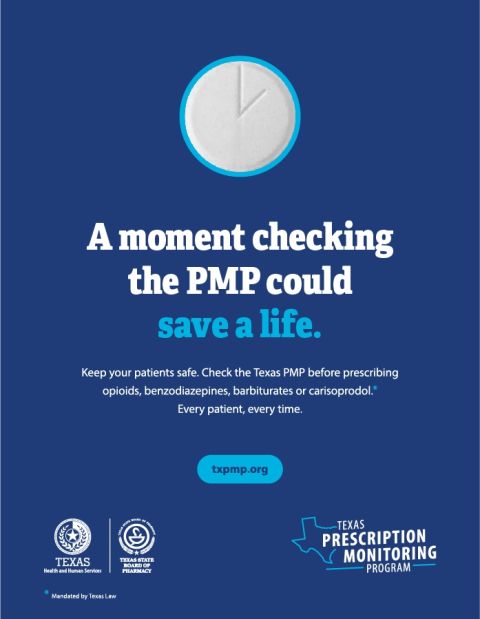
A moment checking the PMP could save a life.
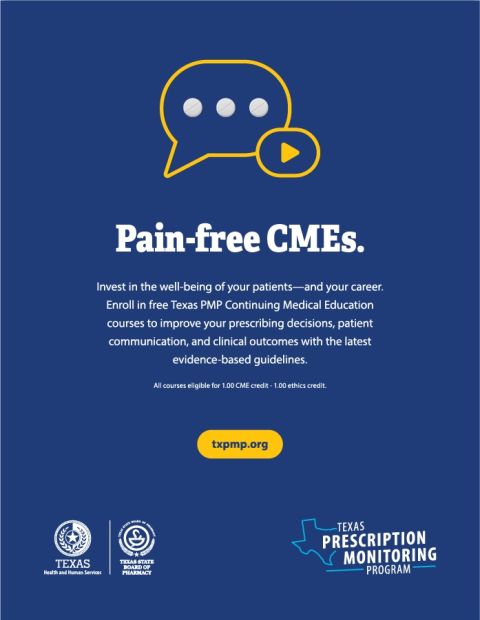
Pain-free CMEs.
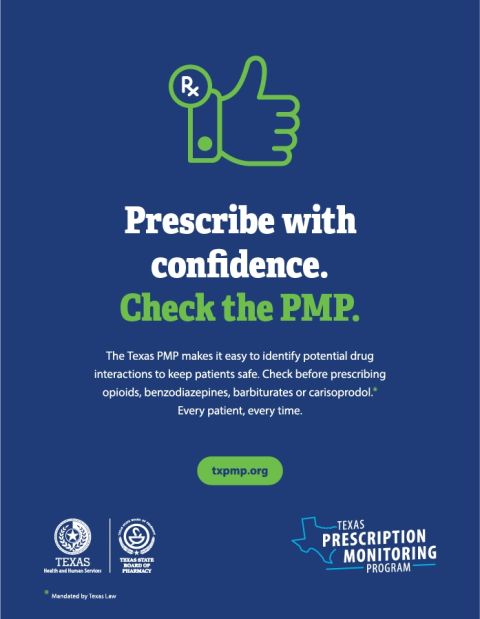
Prescribe with confidence. Check the PMP.
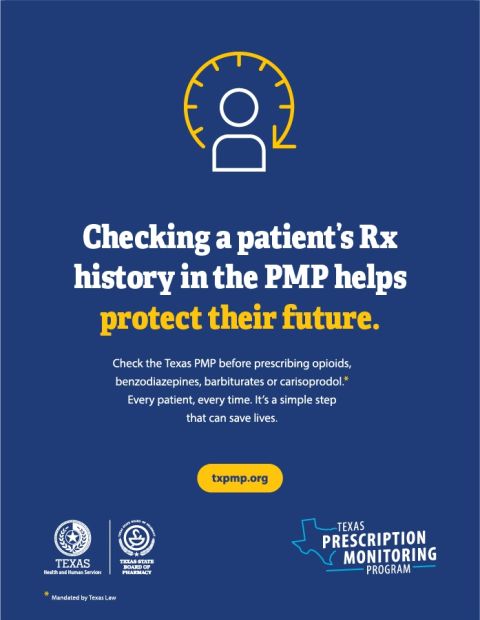
Checking a patient's Rx history in the PMP helps protect their future.
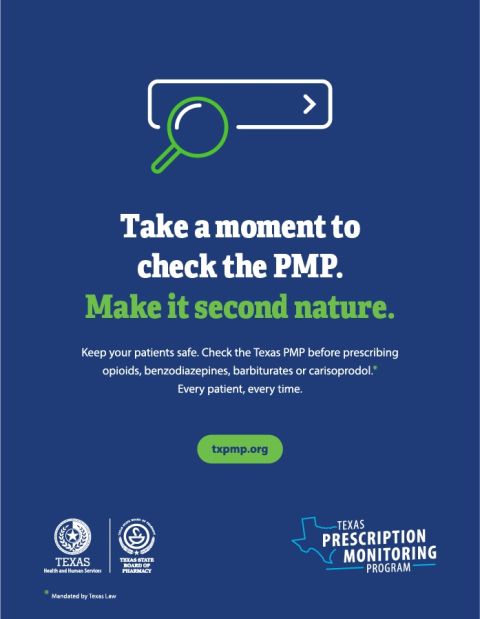
Take a moment to check the PMP. Make it second nature.
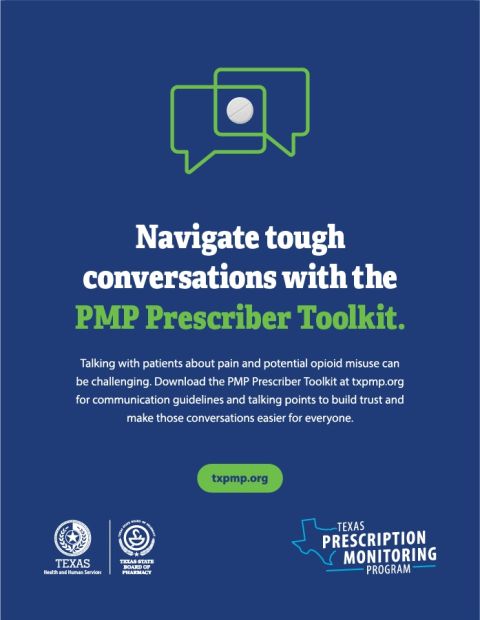
Navigate tough conversations with the PMP Prescriber Toolkit.
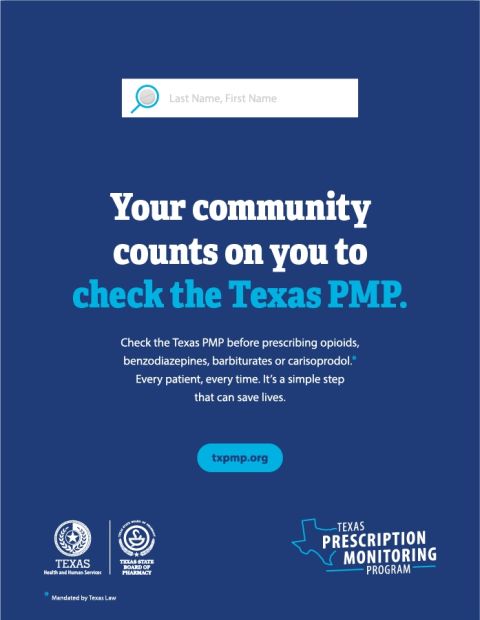
Your community counts on you to check the Texas PMP.
